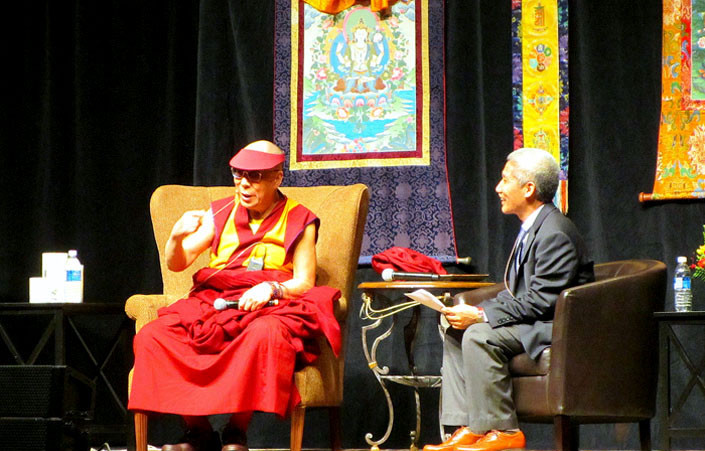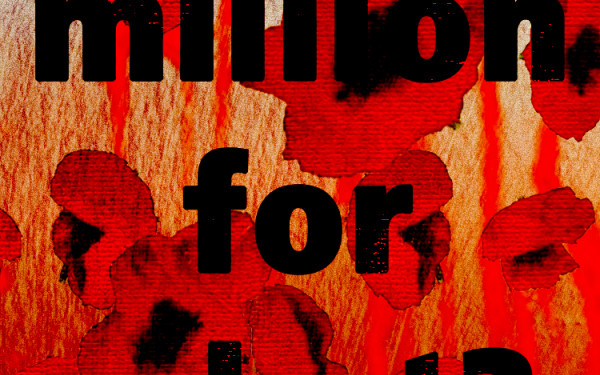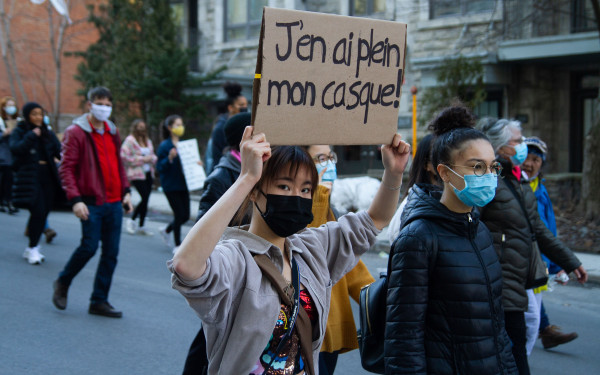“Ethics for a Whole World”
Tibetan Leaders in Exile Speak of Hope in Ottawa
The Dalai Lama arrived to speak to 7,000 people at Lansdowne Park in Ottawa on April 27 with the message that the 21st century could be one of peace.
“It’s possible in the next century to have a demilitarized world. If we spend on poverty, education and the environment, then the world will improve. Let’s spend in these fields rather than the killing fields,” said the exiled spiritual leader.
When asked why it seemed the developing countries seemed to have happier populations, the Dalai Lama suggested that the developed world comes with many anxieties.
“In developed countries, people watch too much television or listen to music so much that they don’t spend the time to think about their inner values,” said the Dalai Lama. “Anger, emotions and irritations come from us. When we develop anger, 90 per cent of the time, it’s from one’s own mental disposition.”
Viewed by the Chinese communist government as a “splitist,” the 76-year-old monk retired from politics last year. This is the only Canadian stop in his current world tour, the main purpose of which is to raise funds for the Tibetan Resettlement program from impoverished areas in Northern India in constant threat of cross-border attacks from the Chinese.
The President of Canada Tibet Committee Nima Dorje said over 1,000 Tibetans will be accepted into Canada over the next five years. He emphasized the need for temporary shelter and job placements.
Prime Minister Stephen Harper, wary of criticism from Beijing, met with the Dalai Lama only late Friday for a private courtesy call.
MPs Urge China to Resume Talks with Dalai Lama and Exiled Government
Over the past weekend, delegates from 55 countries gathered for the sixth Parliamentarians’ Convention on Tibet.
Members from all four major Canadian political parties were present.
The Parliamentarians urged Beijing to resume “sincere and constructive dialogue and negotiations between the Dalai Lama or his representatives and the democratically elected political leaders of the Central Tibetan Administration.”
The parliamentarians also issued a joint statement that they are “alarmed at continuing grave violations of human rights in Tibet and the repressive measures taken by People’s Republic of China authorities in reaction to these and other peaceful protests by Tibetans.”
They also emphasized that they are “deeply concerned at the attacks by the authorities of the People’s Republic of China on Tibetan Buddhism as well as their policies and practices that destroy, repress, or discourage” the preservation and development of the Tibetan identity, “including their culture, language, customs, way of life and traditions, and which
display elements of cultural genocide,” read the statement.
In addition to declarations aimed at China, MPs also discussed the degrading of Tibetan issues from environment to property rights.







